6 simple ways to keep your hair healthy
Help prevent breakage and hair loss with these easy tips.
Updated on August 11, 2023

Hair loss and breakage can be caused by a number of factors—hereditary disorders, autoimmune diseases like alopecia, hormones, and menopause, just to name a few. But barring one of these health-related causes, there may be issues related to your diet, the way you style your hair, and stress that can take a toll on your locks’ look and luster.
With that in mind, here's how to take care of your hair to prevent breakage and keep it thick and healthy.
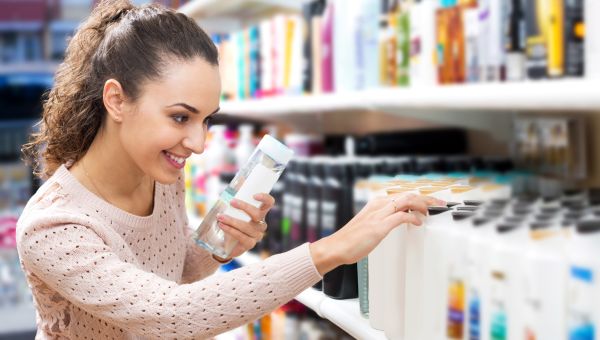
Choose the right products
Whether it’s shampoo, conditioner, or styling products, choose ones with the fewest additives and chemicals to prevent hair damage. “Shop for high-quality products with the shortest list of ingredients,” says internist Mirela Draganescu, MD, of Lourdes Health System in Haddon Township, New Jersey. She says that while they’ll cost more, they’re worth it.
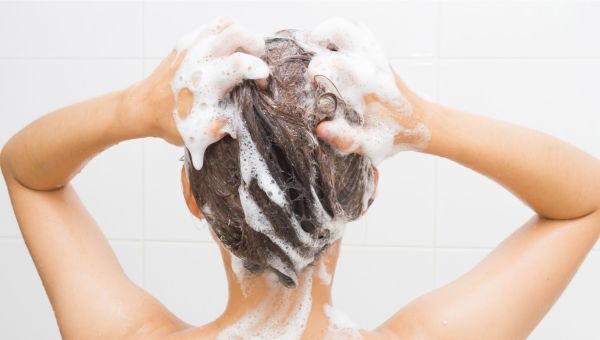
Wash wisely
Keeping your scalp clean makes your hair strong, but washing too frequently can have the opposite effect. Hot water can dry out your skin, hair, and scalp by stripping away natural moisture, leading to hair loss or damage. Warm water is gentler, says Draganescu.
Try not to wash your hair every day. A good rule of thumb? If your scalp is oily, it’s time to wash. When you do suds up, always massage your scalp with your shampoo (a squirt the size of a quarter should be enough) and then let the shampoo run through your hair. Use conditioner on your ends each time you wash.
When wet, your hair is more elastic, delicate and prone to breakage. Instead of ferociously rubbing a towel all over your head after you shower, lightly blot excess water from your hair with the towel.
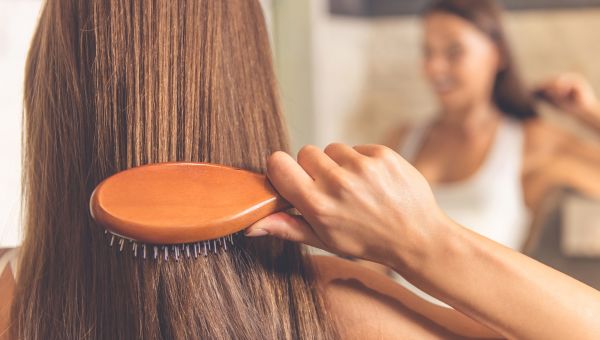
Be gentle
The way in which you handle your hair when it’s dry can impact your hair’s health as well. “Don’t be overly aggressive when brushing or combing your hair, especially when it’s wet,” says Draganescu. Any intense pulling can cause your hair to fall out.
To avoid split ends and hair loss, limit how much you use your flat iron, curling iron, blow dryer, and other heat-styling products. When you do use these appliances, choose the lowest temperature setting to minimize damage. If you’re using a hair dryer, hold it at least six inches away from your scalp. For further protection, use a heat protectant product before styling. These products contain polymers and silicones, which protect your hair cuticles from hot temperatures.
Perms, hair dyes, gels, and relaxers can also encourage breaking, so try to limit how often you get those treatments. If you color your hair, stick to within three shades of your natural color.
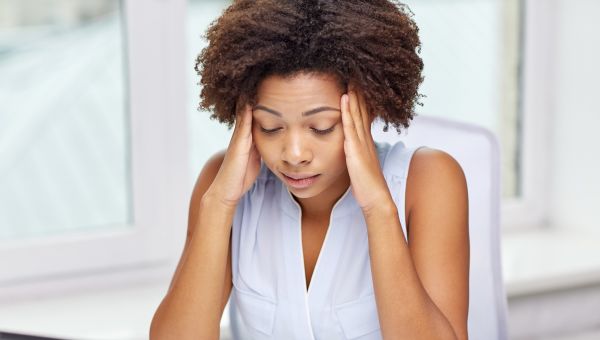
Reduce stress
High stress levels can contribute to a variety of health issues—and it can cause hair loss, too. Here are some things that can help reduce your stress levels:
Exercise: Even a 20-minute walk or workout can help calm your mind. Try heading outdoors for a quick stroll, or head to your favorite workout class to blow off steam.
Be social: Don’t hold it in. Talking to a trusted family member or friend about what’s stressing you can help put your mind at ease. You may even gain a new perspective on the problem.
Meditate: Meditation or prayer can help you relax, focus and calm your mind. Start with 5 to 10 minutes when you wake up or right before bed.
If you still having trouble de-stressing, see your healthcare provider to talk through treatment options.
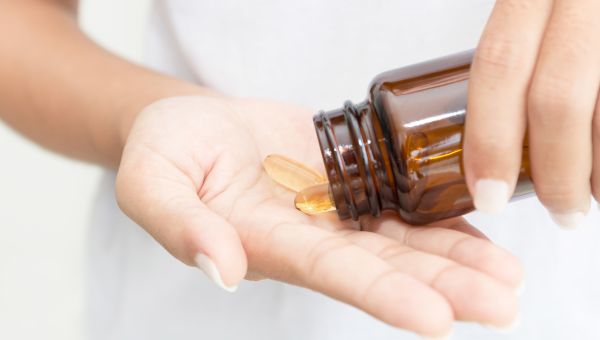
Try biotin
“If you have weak hair or hair loss, and your blood work is fine and you don’t have any thyroid issues or health conditions like lupus or anemia, I recommend biotin,” says Draganescu. Biotin is a vitamin found in a wide range of foods; it’s typically used to treat a biotin deficiency associated with pregnancy or breastfeeding, among other health issues.
A biotin deficiency is rare otherwise—most people who eat a well-balanced diet get plenty of it. Some preliminary research suggests that biotin may help reduce hair thinning. But if you take it, Draganescu says, don’t expect quick results: you’ll need to take it for at least three months to see if there’s any improvement. Why so long? “Hair grows very slowly,” she says.
Before you take any supplement, let your healthcare provider know. They may be able to pinpoint any potential health issues or help find the best option for you.
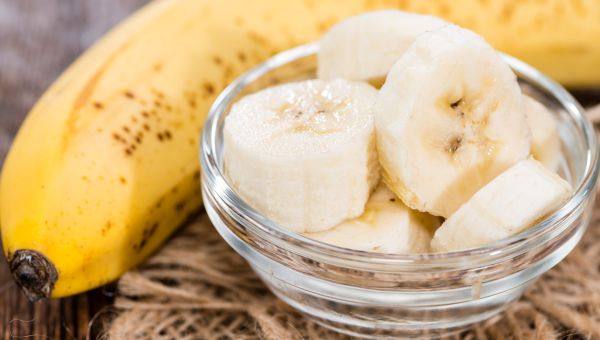
Watch what you eat
A diet rich in fruits and vegetables, protein, and iron can improve the health of your hair.
“I prefer to use food as medicine. I think we should optimize our diet first before going to supplements,” says Draganescu.
“The vitamin biotin is naturally found in foods like cauliflower, whole wheat, soy beans, bananas, black-eyed peas, sardines, nut butters, and beans,” she says. But if you really want to maximize your food’s beauty benefits, try peanuts, liver, Swiss chard, and eggs. All of these healthy foods are loaded with biotin, zinc and vitamins A and C, which can help keep your hair healthy.
While protein is an obvious necessity in any healthy eating plan, you may experience hair loss if you don’t eat enough of it. While daily recommended amounts vary from person to person, aim for 10 to 35 percent of your calories from protein. Healthy protein sources include eggs, fish, nuts, seeds, beans, and lean meats like turkey and chicken.
Iron deficiency can also lead to hair loss. To keep your mane healthy, bolster your diet with iron-rich foods like fortified cereals, soybeans, white beans, lentils, and oysters. It’s recommended that men 19 to 50 years old get 8 milligrams of iron per day, while women need 18mg and pregnant women 27mg. For both men and women over 51, 8mg is considered sufficient.

Mayo Clinic. Hair loss. March 26, 2022.
American Academy of Dermatology. Skin Conditions by the Numbers. Accessed November 17, 2022.
American Academy of Dermatology. Tips for Healthy Hair. Accessed November 17, 2022.
American Academy of Dermatology. Dermatologists' Top Tips for Relieving Dry Skin. Accessed November 17, 2022.
American Academy of Dermatology. Hair Loss: Tips for Managing. Accessed November 17, 2022.
American Academy of Dermatology. How to Stop Damaging Your Hair. Accessed November 17, 2022.
American Academy of Dermatology. Teaching Your Child Healthy Hair Habits. Accessed November 17, 2022.
Mayo Clinic. Can stress cause hair loss? September 14, 2021.
American Psychological Association. Manage stress: Strengthen your support network. Updated October 21, 2022.
Oregon State University. Biotin. Last updated October 21, 2015.
MedlinePlus. Biotin. Last reviewed August 19, 2021.
NIH Office of Dietary Supplements. Iron: Fact Sheet for Health Professionals. Updated April 5, 2022.
USDA. Dietary Guidelines for Americans, 2020-2025. December 2020.
More On


video
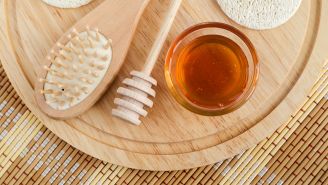
article
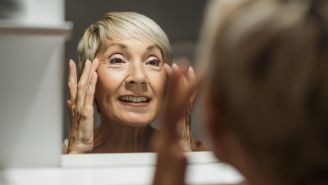
slideshow


video


video
